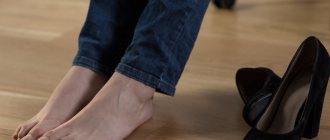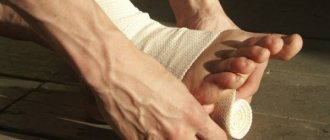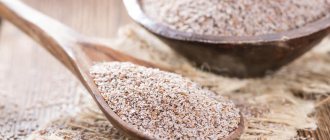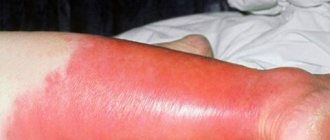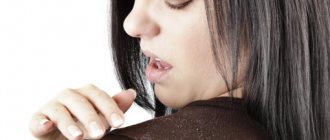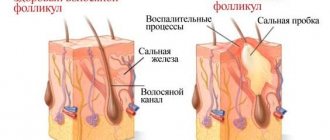The problem of hyperhidrosis or excessive sweating of the feet is familiar to many. This pathology causes additional inconvenience, as it is accompanied by an unpleasant odor. But not everyone knows that hyperhidrosis can be cured, including at home.
There are natural methods for getting rid of excessive sweating. For adherents of traditional medicine and cosmetology, there are effective medicinal and invasive methods. Follow the link if you want to find out how you can cope with sweating all over your body and what is better to use deodorant or antiperspirant. But gel insoles help with fatigue and pain in the legs.
Excessive sweating can be prevented. Since this problem can affect anyone, knowledge about the basic methods of preventing hyperhidrosis will not hurt.
Feet sweat a lot and smell (stink): causes and treatment
The reasons for increased sweating of the feet and the occurrence of an unpleasant odor lie in the peculiarities of human physiology and health. In many ways, it is affected by the way of life in modern society.
The disease most often affects mental workers. Sedentary work and a specific dress code prohibiting the wearing of open shoes are the main prerequisites. In closed shoes there is no air ventilation, and foot sweating is impaired. Hence the development of pathology with the further appearance of odor.
Why do my feet sweat in shoes?
The main reason for sweaty feet in shoes is a constant increase in body temperature in this zone. Thermoregulation of the body is carried out through sweating. The sweat glands take on an increased load. As a result, hyperfunction of the sweat glands occurs and, as a consequence, hyperhidrosis. Everyone who suffers from this problem constantly has sweaty and cold feet.
Signs appear when wearing tight shoes, when shoes do not match the weather, sweat glands are activated when wearing synthetic socks and tights.
Additional factors include:
- pregnancy. Women's feet especially sweat, they react to hormonal changes;
- menopause;
- hyperfunction of the thyroid gland;
- skin diseases;
- fungal infection;
- insufficient personal hygiene;
- frequent wearing of shoes with rubber soles;
- excess weight, as a result – increased load on the legs;
- stress, anxiety, strong emotional stress.
Alcohol abuse and smoking impair the functioning of the endocrine and nervous systems. This can also lead to hyperhidrosis.
Sometimes the pathology of the sweat glands is hereditary. In this case, you can only reduce the manifestations of hyperhidrosis. It is important to improve your diet and pay attention to the selection of shoes, socks and tights - they must be natural.
Hyperhidrosis test
Excessive sweating may not be caused by a pathological condition, but by a lack of proper personal hygiene or excessive use of synthetics and closed shoes. You can independently determine whether hyperhidrosis is the cause of the problem or not. There is a simple test for this. It can be done at home.
Make a solution of iodine in water (a few drops per glass), soak a cotton pad in the liquid. We rub it over the feet and sprinkle the skin with corn starch on top. If you do have hyperhidrosis, the area where your skin sweats most often will turn blue. For the test to give the correct result, it must be performed at rest and not after physical activity.
Sometimes we exaggerate the problem of sweating, attributing to ourselves a non-existent disease. You can determine whether there is a pathology by answering several questions.
- If your feet sweat on a hot day or after a long walk, especially in closed and non-breathable shoes, as well as during pregnancy, sweating is normal.
- When your feet sweat a lot even in the cold season and at rest, you should worry. Or when the smell is heard by everyone around, and also if your feet sweat and smell bad even with frequent washing.
What medications to treat sweaty feet
Pathological sweating of the feet affects a person’s physical and emotional state and interferes with normal work and rest. If the manifestation is severe, you should turn to proven pharmaceutical products. Most of them, in spray or powder format, are used externally and are not harmful to the body.
Deodorant spray Dulfavit is a completely natural product. Due to the absence of harmful chemical components, it is not contraindicated for pregnant, lactating women and children.
We spray the shoes on the inside and wrap them in a bag to create a tight seal. Leave for 45 minutes. In addition, we put it on our feet, without putting anything on them until the product dries completely.
The duration and frequency of application depend on how severe the problem is. If your feet sweat a lot and have a strong unpleasant odor, you should use it regularly for 5 days in a row. If necessary, the course is repeated.
Teymurov's spray (or paste) is an effective remedy aimed at normalizing blood circulation. The antibacterial effect of the drug helps eliminate the characteristic odor. Due to its activity, the drug is not recommended for children and adolescents under 18 years of age, as well as pregnant and lactating women.
Directions for use: Apply the product to clean, dry feet. If a spray is used, it is recommended to repeat the procedure 3 times a day. The paste is applied once a day, before bedtime. Socks are put on top. Treatment 7 days.
Hexamine is an antiseptic. Sold in pharmacies in the form of powder and liquid solution. The solution is applied with a sponge to clean feet, and cotton socks are put on top. Sprinkle the powder on your feet several times during the day. When leaving home, wash it off using antibacterial soap. The drug is contraindicated in the presence of fungal skin lesions and unhealed lesions.
Borozin powder is an effective antifungal drug. Has a powder format. Corrects sweat secretion, reduces unpleasant odor, heals microcracks and wounds, softens the epidermis.
To reduce sweating, the powder is poured into shoes. The package is divided in half into a pair of shoes, remains there all day, and reduces symptoms while walking. Treatment for 5 days, changing the powder daily.
Formagel - has a gel consistency. Thanks to its composition, it reduces excessive sweating of the feet and helps soften the epidermis of the feet and heels. Apply a thin layer to clean, dry feet.
Leave the gel on the skin for about half an hour, then rinse with warm water. Foot treatment is carried out once every 2-3 weeks.
Recommendations for selection and care
Winter shoes, as well as demi-season or summer shoes, should be comfortable. If the size does not correspond to the length or width of a person’s foot, the model will squeeze it too much, or, conversely, “hang loose”. In both cases, increased sweating is possible. In addition, it is very important to choose high-quality socks and insoles that will be responsible for air circulation, and also to take care of your shoes seriously.
Socks
As you know, synthetic materials hardly allow air to pass through and do not absorb moisture well, so they are definitely not suitable for warm or closed sports shoes. It is better to wear cotton or linen socks, so the skin will fully “breathe”. Even if your feet sweat, the smell will still not appear, since the moisture will evaporate very quickly.
The only representative of the artificial line of fabrics that deserves attention is bamboo. Socks made from this raw material are ideal even for hot summers, since bamboo fiber can cool the body despite the ambient temperature. Such underwear is very pleasant to the touch, but it is not customary to wear it under insulated shoes. The use of warm woolen socks in winter is justified only if there is severe frost outside.
Bamboo Cotton
Insoles
Often shoes do not allow enough air to pass through precisely because of the insoles. What to do and how to deal with it:
- Winter boots can be insulated with a pair of wool or fur insoles. Models made from sheep wool are especially good. A cheaper analogue is felt liners, which perfectly absorb moisture without deforming over time.
- Summer shoes are usually equipped with textile insoles. Some manufacturers impregnate them with special bactericidal agents, which allows you to wear your favorite sneakers or shoes on bare feet without fear of fungus. Latex inserts with the addition of activated carbon are also considered a good solution against sweating.
- For demi-season shoes, the ideal option is multi-layer leather insoles.
New insoles must have special holes for air circulation, clearly match the shoe size, be perfectly smooth, and made of a suitable material.
Do not use wrinkled or broken insoles. They do not provide uniform air circulation or control the temperature of the foot, so the feet may sweat locally, which increases the risk of developing fungus.
Leather Fur Textile
Shoes
It is impossible to say unequivocally what materials shoes should be made of. Here you need to rely on the individual characteristics of the person, taking into account his possible contraindications and intolerance. If you have problems with sweating, in the summer you need to choose light fabric shoes or special “breathable” models - for example, sneakers using mesh textiles. Of course, it is advisable to give preference to natural materials. A leather model will be much more comfortable than similar boots made of leatherette, and it is better to replace synthetic “dutik” with woolen felt boots.
Regardless of what season the shoes are intended for, they require careful care. The insoles should always be dry, and the soles should be free of cracks and holes. Between seasons, products should be stored in cardboard boxes or bags, after cleaning and drying them. To prevent your feet from sweating, don’t forget to treat your boots or sneakers with antibacterial agents before putting them away on the shelf. You can also use special absorbent bags, which are offered by shoe stores.
Felt boots Leather Mesh Fabric
What to do at home?
If pharmacy medications are excluded for some reason, you can use traditional methods. Folk traditions tell how to combat sweaty feet and bad odor using home remedies.
Folk remedies for sweating
Oak bark is the most effective remedy against sweating. Grind the dry bark and fill a glass of the resulting raw material with 0.5 liters of water. Boil for 15 minutes, then leave until the broth has cooled completely. Strain and dilute with water in a 1:1 ratio. We make baths after washing our feet. We perform the procedure daily for 1.5 weeks.
An alternative way to prepare a bath: boil 2 tablespoons of crushed bark in a liter of milk for half an hour. After straining, dilute with a glass of milk and make a foot bath in the same way.
Tincture of birch buds - reduces sweating when lubricating the feet and skin between the toes. How to cook: add 5 tbsp. l. buds into a bottle, pour 0.5 liters of vodka. Shake the container and leave it in the refrigerator for 10 days. Then you can use it.
Boric acid is effective against increased sweating. It can be bought at the pharmacy in powder form. Pour the powder into a basin and stomp on it so that the powder is distributed over the entire surface of the foot and between the toes. Without washing the acid off your feet, put on natural socks and go to bed. Wash your feet in the morning. For effect, repeat the procedure 10 – 15 days in a row.
Willow bark has a positive effect on the level of sweating. Pour 2 tablespoons of crushed bark into 500 ml of water. Leave for 24 hours, strain and dilute with 1 liter of hot water. We do foot baths for 21 days. Each procedure lasts 15 – 20 minutes. When finished, don’t wipe your feet; they should dry on their own.
of calendula, mint and rosehip herbs are effective in combating sweating. Pour any of these dry herbs (5 tablespoons) into 1 liter of boiling water. After cooling and infusing, add to the foot bath. The course of procedures is 3 weeks. If you mix a decoction of any of these herbs with honey, you get a paste. You can use it to make compresses for your feet before going to bed.
Sage is used as an infusion (orally as a drink). Pour a tablespoon of dry raw material into 0.5 liters of boiling water. After leaving for 40 minutes, strain and drink once a day, 2 tablespoons. The course of treatment is 3 weeks, then a break.
A mixture of herbs (oats, sage and barley) is effective against sweating feet. Grind the herbs, put them in socks, put them on your feet and leave them overnight. In the morning, rinse your feet with a previously prepared sage decoction. We repeat the procedure for 3 weeks.
Soda lotions give a good healing effect. In a glass of warm water, dilute a tablespoon of soda. After moistening gauze napkins in the resulting solution, apply them to the feet and between the toes. After holding this compress for 1 hour, rinse your feet with cool water. Recommended course – 2 weeks.
A mixture of chicken eggs and vegetable oil. Combine a tablespoon of oil with 1 egg and beat in a blender. Apply the resulting mixture to your feet, after 10 minutes put on your socks and leave it overnight. The course of treatment is 10-15 days.
Beer is useful in the fight against sweating feet: add 1 bottle of the drink to 2 liters of hot water. In the resulting bath we steam our feet before going to bed for up to 15 minutes. The course of treatment is 3 weeks.
Rice water reduces sweating. Boil a glass of rice in 1 liter of water, leave for 5 hours, wrapped in a towel. Pour the finished broth into 1 liter of hot water. Place your feet in the bath. The duration of the procedure is 30 minutes. After wiping your feet dry, put on socks, into which you pour 1 spoon of mustard powder. Keep it like this until the morning. The total duration of the procedures is 2 weeks or more.
9% apple cider vinegar is useful against sweating feet. Apply vinegar to a cotton pad twice a day and wipe your feet and toes with it. Additionally, you can make vinegar baths at night: dilute 0.5 cups of vinegar in 1 liter of hot water. After a 15-20 minute procedure, the feet are allowed to dry on their own without wiping. Vinegar procedures are performed for 21 days, then a break.
A solution of potassium permanganate is a common remedy that is often used to eliminate excessive sweating of the feet. You will need 5-7 drops of potassium permanganate on a basin of water so that the water acquires a light pink tint. Lower your legs for 15 minutes. There are no restrictions on treatment.
Prevention of sweaty feet
To prevent the problem of hyperhidrosis from affecting you at all, you should pay attention to the prevention of the disease. An important condition is maintaining personal hygiene. Be sure to wash your feet daily. Of all types of soap, it is better to choose the most natural laundry soap. If your feet sweat excessively, it is more useful to rinse them with cold water while washing. And after baths it is better not to wipe it, but to dry it naturally.
When washing, be sure to remove dead skin particles. They promote the accumulation and proliferation of bacteria and fungi. A contrast shower is useful for the normal functioning of the sweat glands.
To prevent the development of hyperhidrosis, it is recommended to regularly wipe the insoles of shoes with a solution of boric acid or any other antiseptic. Another good solution is to choose insoles with adsorbent. They need to be changed every 3 months. Do not neglect special antiperspirants and deodorants for feet with an antibacterial effect.
The right choice of clothes and shoes is one of the most important requirements.
- So, socks should be natural.
- It is better for women to wear synthetic tights as rarely as possible.
- Shoes should also be made from natural materials. It is better to give preference to styles that are not too narrow.
- Shoes must be the right size.
- And wet shoes must be completely dried, otherwise pathogenic microorganisms will develop in them, which can cause pathology of the sweat glands.
Frequent consumption of onions, garlic and spicy foods increases sweating and worsens metabolism. It is worth reducing their concentration in the diet. If possible, you should minimize standing on your feet and reduce stress, since these factors also affect the functioning of the sweat glands.
Effective baths for sweaty feet
What to do at home if your feet sweat? Self-prepared baths will come to the rescue. Such remedies for getting rid of hyperhidrosis are absolutely safe for health and harmless, and very often give excellent results. Foot baths contain antibacterial agents and herbal decoctions. Also very often manipulations are performed with the addition of essential oils.
Let's look at the best foot bath recipes:
- Fir needles . To obtain a healing decoction, take 400 g of spruce needles and pour 5 liters of boiling water over them. Wrap the container with a towel and leave to infuse for 2 hours. Filter the broth and discard the needles. Keep your feet in a container with the broth for half an hour. This method is actively used to eliminate unpleasant odors.
- St. John's wort . The resulting product should be used every day for a month. To obtain a healing composition, add 40 grams of herb to 2 liters of boiling water. Boil the mixture over low heat for a quarter of an hour. Then filter and cool. Keep the limbs in the liquid for a third of an hour.
- Straw and oak bark . What to do if your feet sweat a lot? To prepare the decoction, take 300 grams of oat straw and 50 grams of oak bark. Use dry ingredients. Pour a bucket of liquid over everything and boil for a third of an hour. Wait until the product cools down a little, then immerse your limbs in it for half an hour. Perform manipulations daily. The recipe is effective for hyperhidrosis not only of the legs, but of the whole body.
- Beer bath . Add half a liter of real draft beer to 2 liters of hot liquid. Steam the lower limbs in the resulting mixture for at least 15 minutes. It is recommended to carry out the procedure before bedtime. Afterwards, wipe your feet with a cotton towel and go to bed. The duration of therapy using this method is usually 3-4 weeks.
- Nut bath . To prepare the bath and carry out the procedure, you will need to take 20 walnut leaves, a handful of chamomile flowers and pour boiling water. Wrap the pan with the mixture in a towel and leave to steep for 40 minutes. As soon as it cools down, pour it into a basin and lower the limbs into it. The procedure should be carried out within a quarter of an hour.
- Bath with potassium permanganate . Dissolve potassium permanganate in two liters of warm water. The solution should turn light pink. Sessions are carried out every day for 10 minutes until the problem is completely eliminated.
- Bath with vinegar . Heat 2 liters of liquid to an acceptable temperature. Add 20 ml of vinegar to it. Immerse your feet in the liquid for 5 minutes. Sessions are held every day for 14 days.
The baths provide the most positive results and are absolutely harmless.
What to do if your child’s feet are sweaty?
Increased sweating in children is a common occurrence. The pathology is caused by a number of reasons. For example, hyperhidrosis becomes a consequence of disorders of the central nervous system, the activity of parasites in the body, as well as a lack of vitamin D. To understand what exactly the cause is in each specific case, you need to undergo a comprehensive examination of the body.
Is there any reason to be wary?
The combination of sudden sweating of the feet with a dry cough and itching in the anal canal can be especially dangerous. This often means a helminthic infestation, which, if left untreated, can harm the child's health.
In children under one year of age, sweating of the feet in the absence of other alarming symptoms should not cause concern. Until 2–3 years of age, the body’s thermoregulation system is not yet fully established. For kids at this age, it is enough to take a course of vitamin D drops during the winter, and also undergo regular examinations by a pediatrician. If such symptoms are observed in a 7-year-old child, this may mean a pathology of the sweat glands.
The most common reason why very often children have increased sweating of their feet is that they are dressed too warmly. It must be taken into account that children move a lot. Shoes should be chosen that are lighter; insulating your feet excessively is not very beneficial.
How to choose the right shoes for a child?
Selecting shoes for a child is an important measure for the prevention and elimination of hyperhidrosis. Fully synthetic shoes are not advisable. It must be strictly in size. If the baby quickly grows out of the boots, they need to be changed. Wearing it can also be harmful for the formation of joints.
You should not choose shoes with faux fur. It is better to give preference to natural sheared fur or wool. The same goes for tights and socks. This rule is the same for both adults and children.
What shoes don't make your feet sweat?
If sweaty feet are caused by unsuitable shoes, getting rid of this problem is not difficult. It is enough to choose shoes or boots of the right style from high-quality material.
Which materials are better
Synthetics do not “breathe”, that is, they do not allow air to pass through. And in conditions of maintaining heat in shoes, pathogenic microorganisms begin to actively multiply. They often cause an unpleasant odor, itching and even more sweating.
Therefore, shoes should be made of natural materials - leather or any type of textile. Feet in suede shoes “breathe” well.
Size and model
Another reason for increased sweating is discomfort when walking. If the shoes are small or the style is chosen poorly and the foot is severely pinched, hyperfunction of the sweat glands is also possible. In addition, blood circulation is impaired, pain and cramps are possible.
In different models, the selection of the desired size may be different. You need to take into account not only the length of the foot, but also its fullness. For example, when buying narrow-toed shoes, those with wide feet should prefer a pair one size larger. The same applies to anyone who has flat feet or other deformities.
Choosing the right shoes
There are several general rules in choosing shoes that will help avoid not only hyperhidrosis, but also some other foot problems.
- Comfortable style. Feet should feel comfortable...
- Avoid high heels. A higher than standard heel (5 cm for women and 1.5 for men) creates an increased load on the foot. As a result, sweat production increases.
It is better to choose new shoes in the evening. At this time, the legs swell a little, and therefore are fuller in volume. This means that the new thing will not be too tight.
It’s a good idea to ask the sellers for a quality certificate for the product. This will allow you to avoid buying shoes made from low-quality material.
Causes of unpleasant amber
There can be several reasons for the unpleasant odor from shoes. The most common ones include:
improper care of the pair, which is why fungi and bacteria grow in the shoes;- some dermatological diseases of the skin of the legs;
- sewing shoes from low-quality materials;
- pet urine;
- improper use of a specific pair (for example, wearing rubber boots for a long time in the heat, etc.) and some other circumstances.
Most causes can be eliminated.
But there are also those that are almost impossible to cope with . This statement can be applied to shoes that are made of materials that emit an unpleasant odor. For the most part, these are very cheap materials that unscrupulous manufacturers use. It is unlikely that it will be possible to completely remove the specific aroma from such a pair.
What to do if your shoes smell and how to get rid of the smell?
An unpleasant odor tends to eat into shoes from the inside. To get rid of this plume, special treatment is required. New shoes must be properly cared for from the moment of purchase.
Shoe processing
There are deodorizing products on sale. These are sprays that contain special absorbents. They absorb excess moisture and destroy bacteria that cause unpleasant odors.
Products such as Pregrada and Snowter do not leave marks on socks, tights and shoes. Since sprays do not contain harmful substances, they are not contraindicated even for children.
Using anti-sweating insoles
Special insoles are another method to solve the problem of sweat and foot odor. Single- or reusable liners contain an absorbent layer that absorbs moisture and absorbs unpleasant odors.
Disposable insoles are used for 20 hours, after which they need to be changed. Reusable liners are more practical. The activated carbon included in the composition performs an adsorbing function. Some types of insoles consist of latex foam or linen.
In addition to absorbing sweat, they have an antiseptic effect. Unlike disposable inserts, reusable ones must be ventilated and dried daily.
How to take care of your shoes
To prevent shoes from accumulating bacteria and unpleasant odors, it is necessary to provide them with proper care. It is important to protect it from frequent getting wet by regularly airing and drying it. This is especially true for warm (autumn and winter) boots.
To prevent pathogenic bacteria from multiplying in boots, they should be stored on special shoe stands. During the season, be sure to let your shoes rest without wearing them for 2 days in a row. Shoes should not be placed near heat sources; under no circumstances should they be left wet. Another important rule is to regularly treat it with antiseptic and water-repellent agents.
Hyperhidrosis can be successfully treated without serious health consequences. But before you think about how to treat and what to anoint your feet with, you need to find out the cause of sweating. If there are no other prerequisites for checking your health status, you can proceed to home treatment methods.
Cosmetical tools
You can also buy products that help you cope with the problem of moisture and unpleasant foot odor in regular cosmetics stores.
- Talc. This can be regular baby powder or scented cosmetic talc. Every time you put on your shoes, dust your feet with powder.
- Dry Dry. A very powerful antiperspirant designed specifically for people who suffer from excessive sweating. It can be used on the armpits, palms and feet.
- Lavilin. Antiperspirant, available in cream form. Can be used for all sweaty areas of the body.
- Special creams. Today there are quite a lot of creams that can help in such an unpleasant matter. They can be found on the shelves of any large supermarket.
- Regular antiperspirants. You can also treat your legs with a regular spray intended for the armpits. This antiperspirant will not only clog your pores, but will also give your feet a pleasant aroma.
